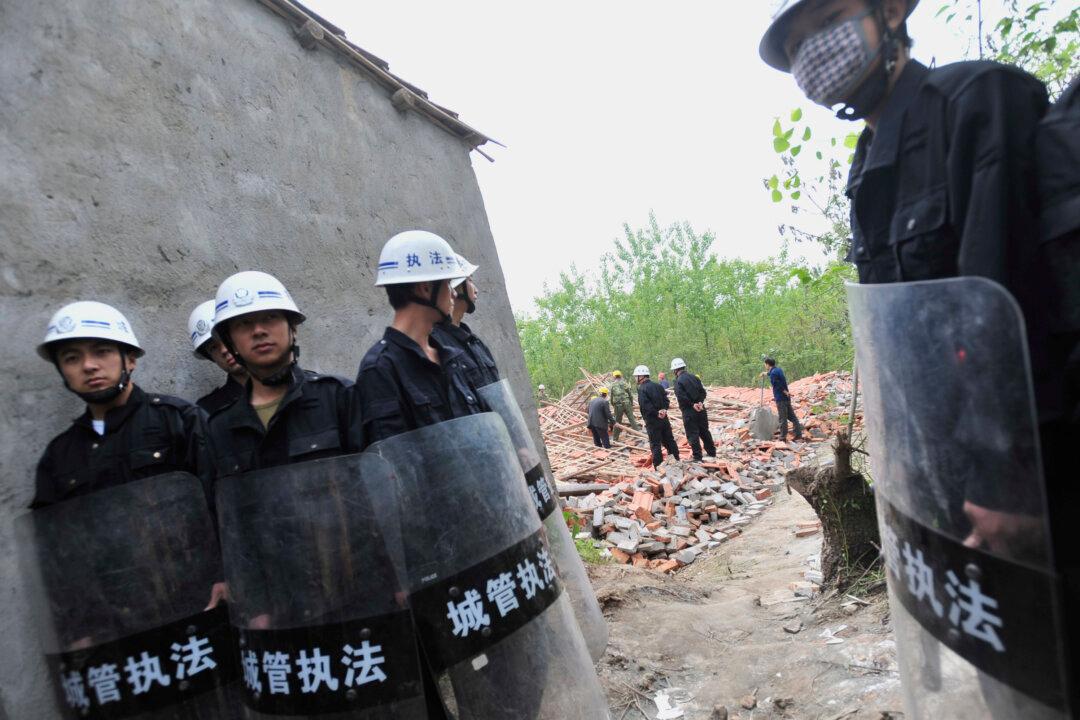It was past three o'clock in the morning on June 29 when hundreds of security agents and armed police were dispatched to conduct a forced demolition of homes in Wayao village, a middle-class residential area in Beijing. While homeowners used rocks and fire extinguishers to defend their properties, the police blasted them with pepper spray, a popular weapon used in the Hong Kong protests. Many local residents were injured, and at least 10 were arrested.
Pepper Spraying
Homeowner Li Liang (alias) told The Epoch Times that the demolition would likely begin in the early morning. At approximately 1 a.m., the residents gathered to block the community exit points.“There are four complexes in this community sharing two exits. I went to one of them. Each exit was occupied by around 200 villagers. We were prepared in case they used pepper spray on us. It turned out that’s what they did.”
